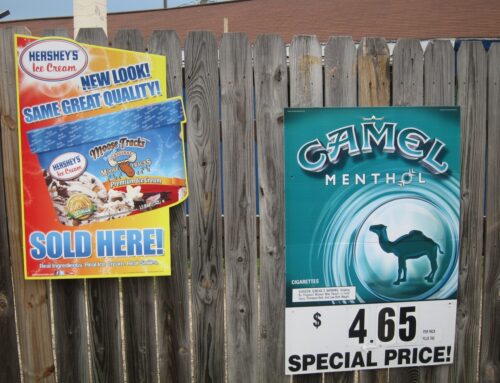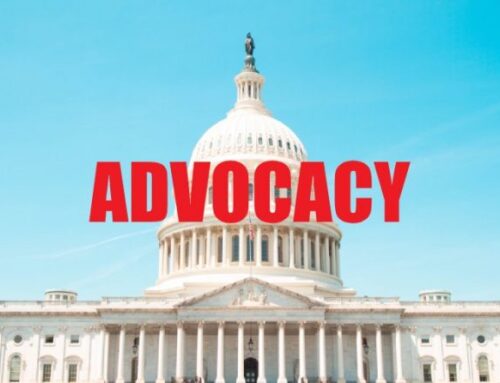The undersigned public health, medical, education and community organizations write to urge prompt action by the Food and Drug Administration to prohibit menthol cigarettes and other non-tobacco flavored tobacco products, including e-cigarettes and cigars.
The public health and medical community has long been united in calling on FDA to use its authority under the Family Smoking Prevention and Tobacco Control Act (TCA) to issue product standards ending the manufacture and sale of flavored tobacco products. There is no question that flavored products are particularly attractive to young people, leading to increased tobacco initiation. As FDA already has found, “the availability of tobacco products with flavors at these development stages attracts youth to initiate use of tobacco products and may result in lifelong use.” The FDA/NIH Population Assessment of Tobacco and Health study found that almost 81% of 12-17 year olds who had ever used a tobacco product initiated use with a flavored product.
Among other efforts to call on FDA to take action against flavored products, in 2013 various organizations filed a Citizen Petition urging FDA to remove cigarettes that have menthol as a characterizing flavor. As a result of litigation against FDA brought by the African American Tobacco Control Leadership Council, Action on Smoking and Health, the American Medical Association and the National Medical Association alleging “unreasonable delay” by the agency in addressing the specific issue of mentholated cigarettes, FDA has represented to a federal court in California that it will issue a final response to the Citizen Petition by April 29, 2021. The undersigned groups are united in urging FDA to grant the Citizen Petition and announce that it will issue a proposed rule to prohibit menthol as a characterizing flavor in cigarettes without delay. This is the only decision consistent with the public health standard set out in the TCA, as well as the relevant science, as FDA itself repeatedly has recognized.
Menthol in cigarettes leads to greater initiation of smoking among youth, makes it harder to quit smoking and has a disproportionate adverse impact on the health of Black Americans. As directed by Congress in the TCA, the Tobacco Products Scientific Advisory Committee (TPSAC) issued a report in 2011 (TPSAC Report), with two primary conclusions: (1) “Menthol cigarettes have an adverse impact on public health in the United States,” and (2) “There are no public health benefits of menthol compared to non-menthol cigarettes.” Indeed, the TPSAC Report projected the adverse impact of menthol in cigarettes from 2011 to the present day, finding that “by 2020, about 17,000 premature deaths will occur and about 2.3 million people will have started smoking, beyond what would have occurred absent availability of menthol cigarettes.” Based on these findings, TPSAC made the following “overall recommendation” to FDA: “Removal of menthol cigarettes from the marketplace would benefit the public health in the United States.”
Two years after issuance of the TPSAC Report, FDA completed its own independent, peer-review evaluation of the available science concerning menthol cigarettes. FDA’s Preliminary Scientific Evaluation of the Possible Public Health Effects of Menthol versus Nonmenthol Cigarettes reached the overall conclusion, consistent with TPSAC’s, that it is “likely that menthol cigarettes pose a public health risk above that seen with nonmenthol
cigarettes.”
FDA has never wavered in its conclusion that menthol cigarettes have an adverse impact on public health. Indeed, in November of 2018, then-Commissioner Scott Gottlieb announced the agency’s intention to “advance a Notice of Proposed Rulemaking that would seek to ban menthol in combustible tobacco products, including cigarettes and cigars. . . .,” after expressing his “deep concern” about “the availability of menthol-flavored cigarettes,” which “represent one of the most common and pernicious routes by which kids initiate on combustible cigarettes” and “exacerbate troubling disparities in health related to race and socioeconomic status.”
These conclusions have been bolstered by recent comments filed in the FDA’s Citizen Petition Docket (FDA-2013-P-0435-0001) by a coalition of 68 public health, medical and community organizations; an extensive supplement to the Citizen Petition filed by the petitioners and other public health organizations; separate comments filed by the National Medical Association; comments filed by 46 scientific experts, led by Jonathan Samet, M.D., M.S. the first chair of TPSAC and its chair at the time of the TPSAC report; and comments filed by 23 state attorneys general. As the chief law enforcement officers of their respective states, the attorneys general addressed the tobacco industry’s longstanding assertion that a menthol ban would lead to a burgeoning illicit market. They concluded that “[t]here is little reason to suggest that prohibiting menthol cigarettes will cause the emergence of an illicit market that will threaten the public health gains from prohibiting menthol cigarettes or that state and federal authorities will be unable to prevent the emergence of such illicit activity. The FDA should not be swayed by the tobacco industry’s doomsday predictions of an increase in illicit trade.”
If FDA is to adhere to its longstanding commitment to entirely science-based decision-making, it must grant the Citizen Petition and inaugurate a regulatory process to prohibit menthol as a characterizing flavor in cigarettes. Moreover, to prevent the industry from selling menthol cigarettes masquerading as cigars, FDA’s menthol rule should apply to menthol in cigars as well. Finally, FDA’s grant of the Citizen Petition on or before April 29 should be the first step toward a broader set of product standards prohibiting all non-tobacco flavors in all tobacco products.
Read the full Letter to Woodcock re menthol (PDF)






